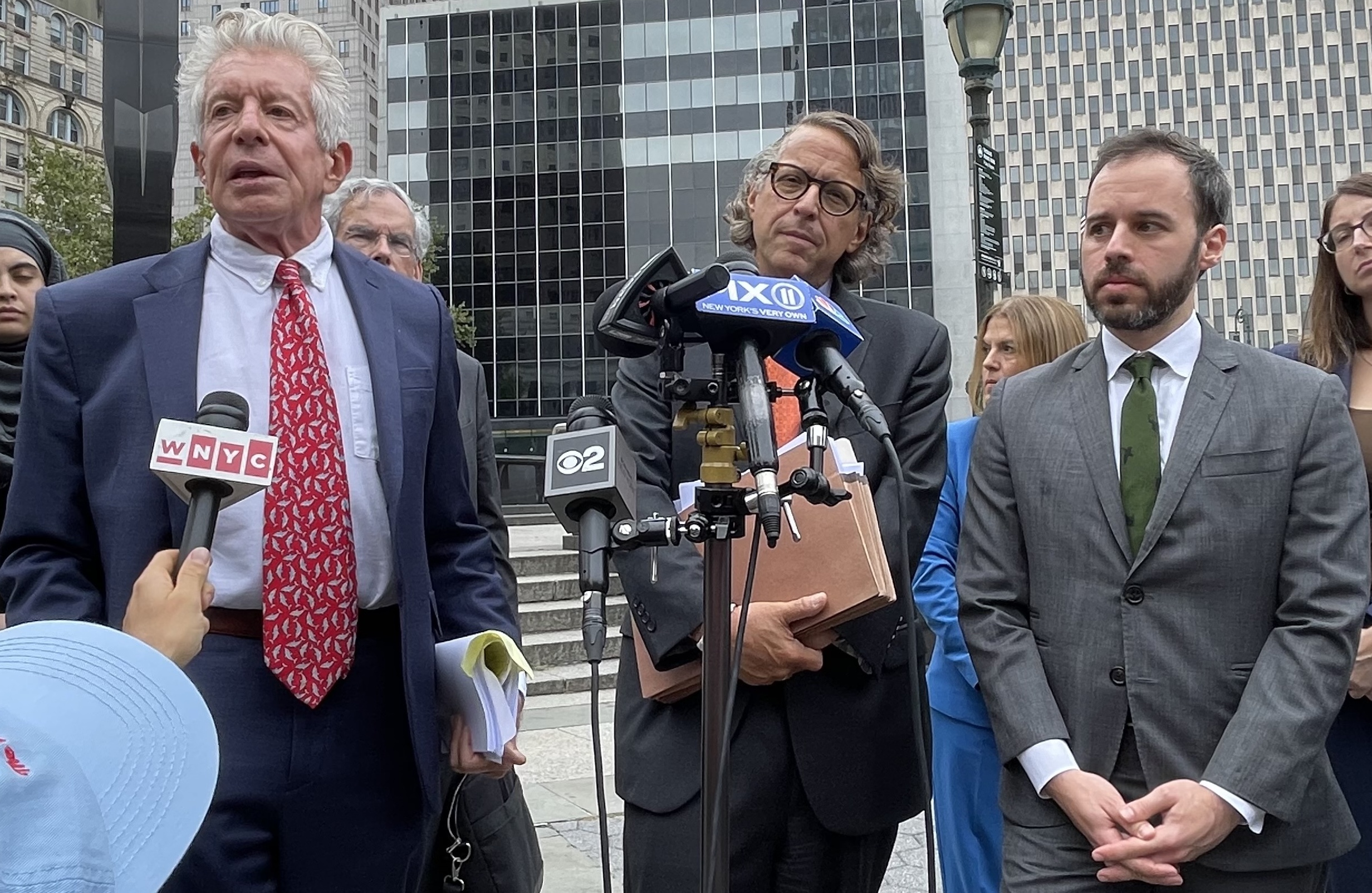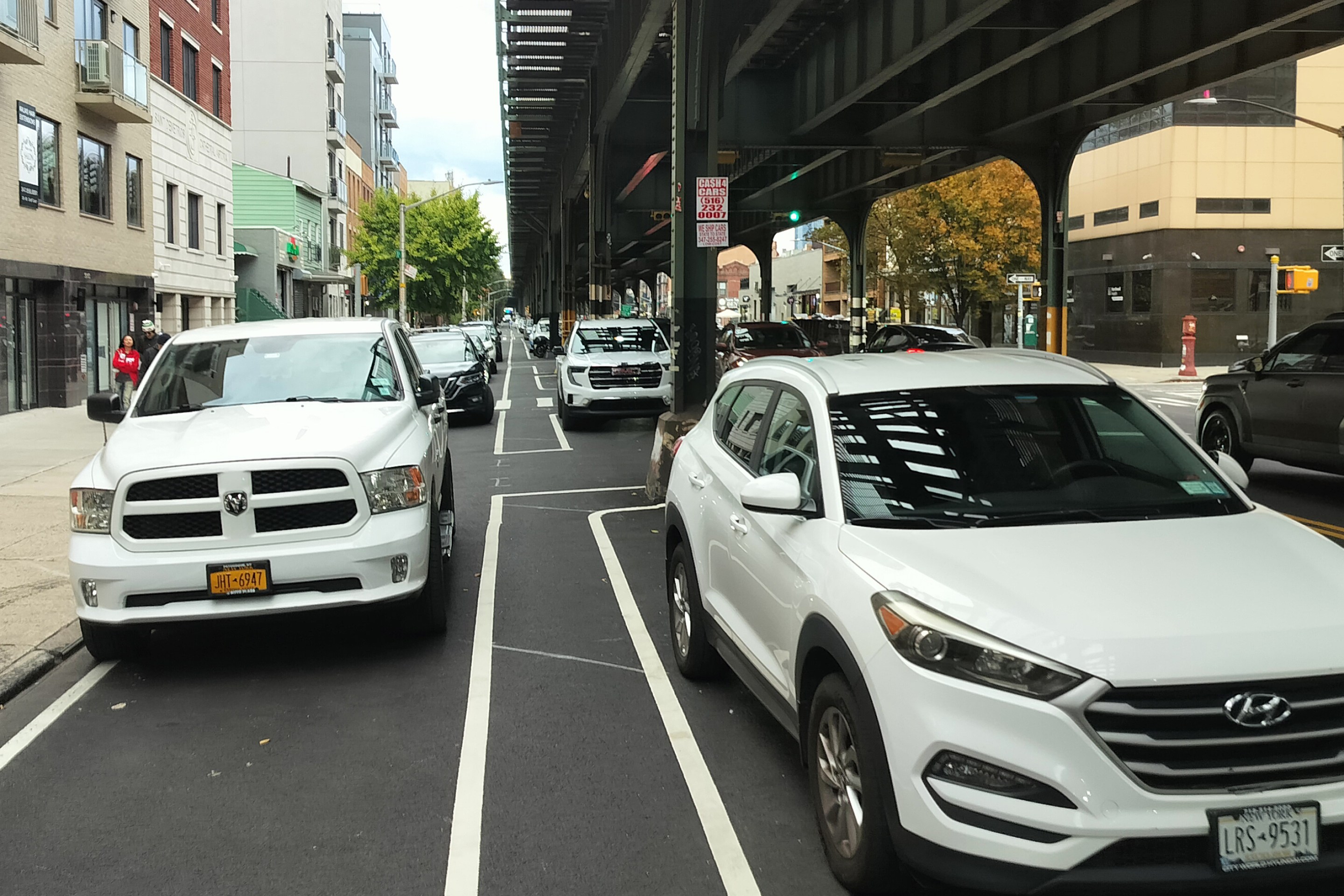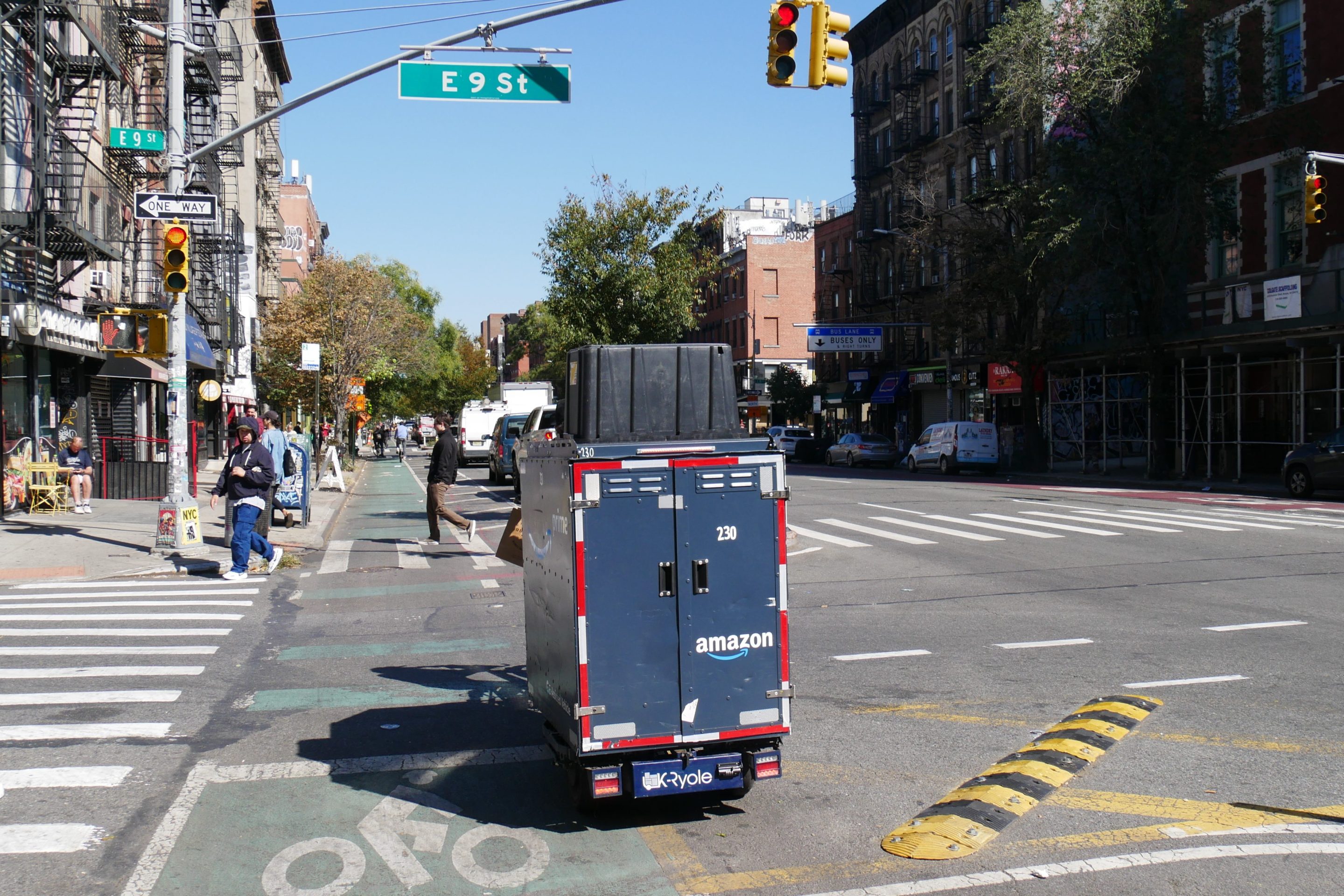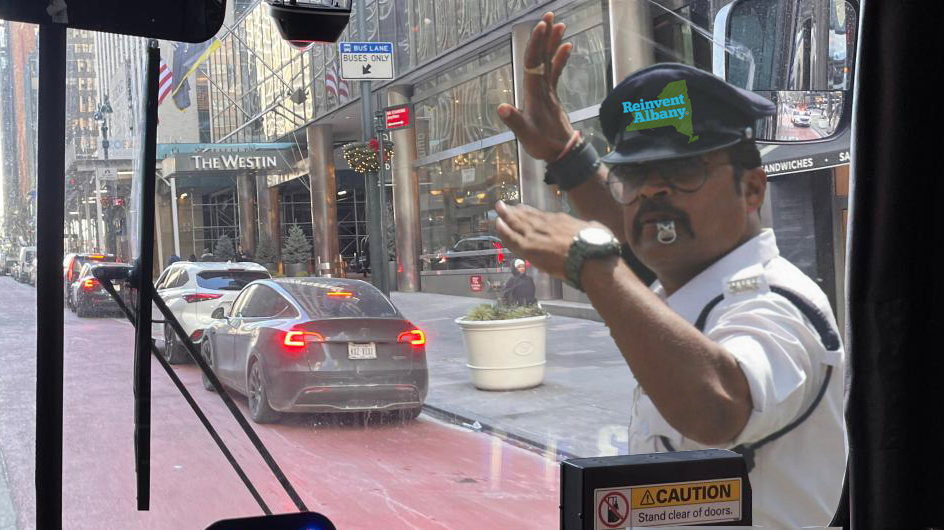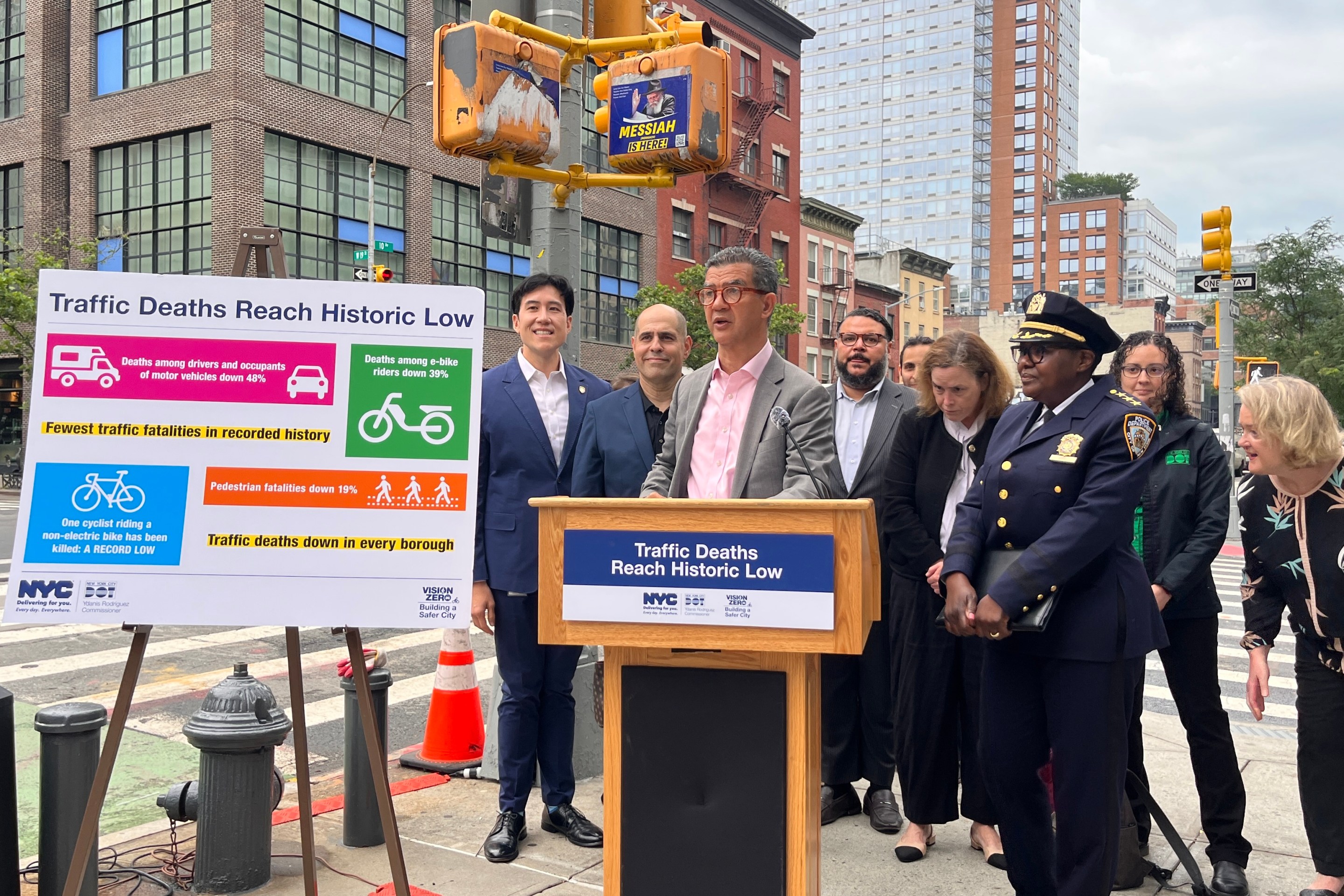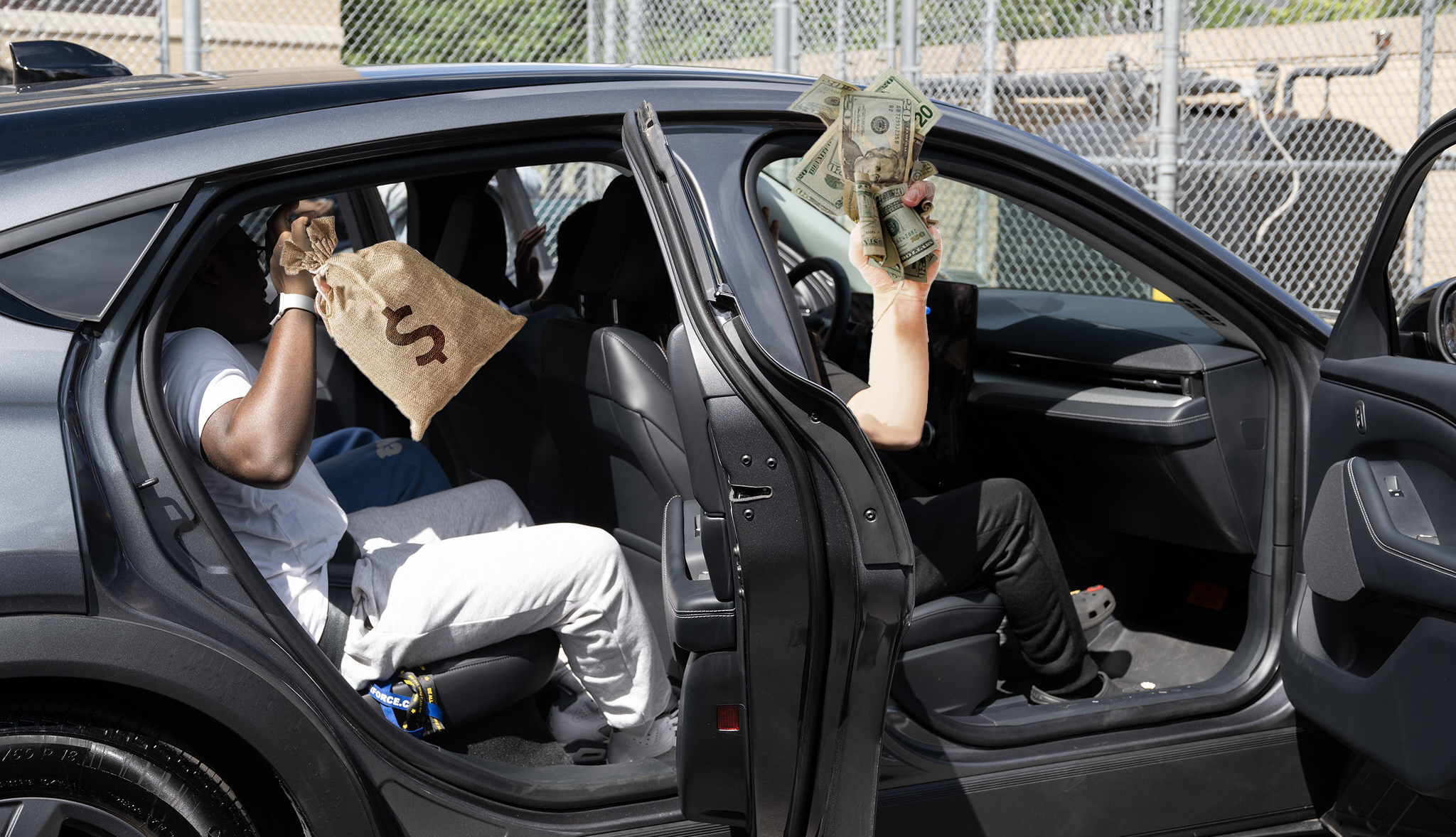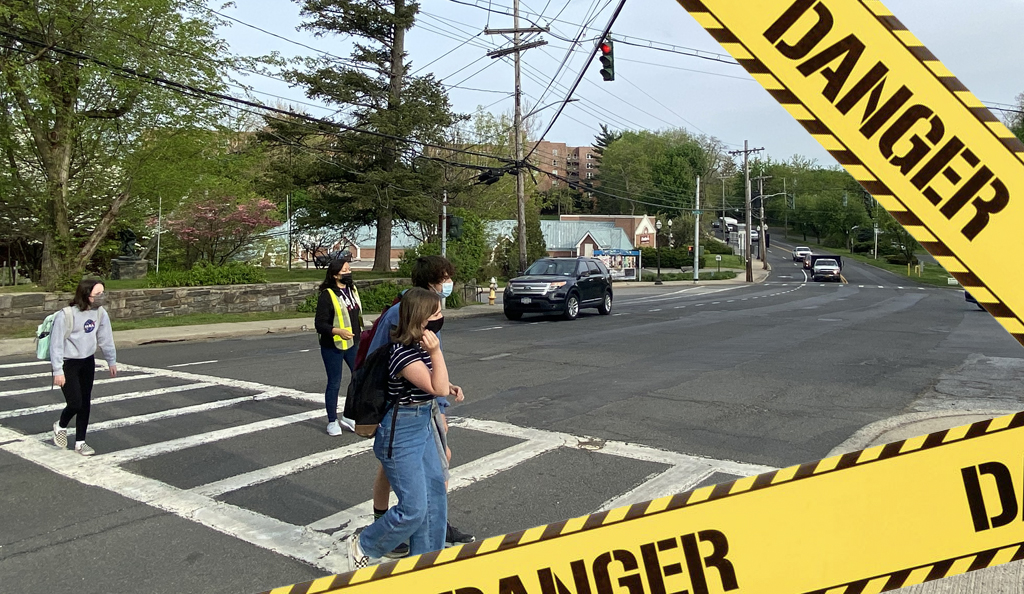Dismiss this!
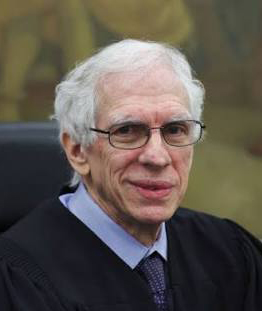
A State Supreme Court judge refused to toss a pair of lawsuits seeking to overturn Gov. Hochul's congestion pricing pause on Friday, paving the way for advocates to make their actual case that the governor acted illegally when she axed the traffic toll in June.
Justice Arthur Engoron announced from the bench that he was denying a motion to dismiss the suits — a ruling he reached after several hours of back and forth from attorneys representing pro-congestion advocates and lawyers for Hochul.
Engoron promised a longer ruling explaining his brief statement to allow the lawsuit to proceed, but even without that exact reasoning laid out, attorneys for the advocates were pleased.
"The governor got way out over her skis here, and today was a clear statement that you better get back on them, obey the law as it is written, and that the failure to not interfere with the [Triborough Bridge and Tunnel Authority] was sanctioned today in a very strong way by denying this motion to dismiss," said Richard Emery, an attorney for the plaintiffs.
Friday's ruling certainly doesn't mean congestion pricing will begin imminently — or ever. But it does mean that paired lawsuits, one brought by the City Club and the other brought by Riders Alliance, the Sierra Club and the New York City Environmental Justice Alliance, will be heard on their merits. And in the view of the one of the attorneys representing the plaintiffs, the speed at which the ruling was issued at least endorsed the idea that the court needs to move forward quickly to determine if Hochul broke the law.
"I think what the judge did today say that congestion pricing will not be delayed by legal technicalities, and a governor who believes that she can set the law on her own and that's a huge victory for people who care about the law and for people who care about congestion pricing," said Andrew Celli, another attorney for the City Club.
Both parties are suing the governor under a provision in state law known as Article 78, an avenue for people to challenge the legality of government decisions.
The City Club suit argues that Hochul, by ordering Transportation Commissioner Marie Therese Dominguez to not sign a federal agreement finalizing the congestion pricing program, the governor violated the law. The other suit argues that in not allowing congestion pricing to proceed as the law dictates, Hochul is violating two landmark state environmental laws: the Climate Leadership and Community Protection Act and the Green Amendment, a constitutional amendment guaranteeing New Yorkers the right to clean air and water.
Hochul's lawyers — outside attorneys because Attorney General Letitia James recused herself from the case — have argued that her pause on congestion pricing "pause" is not subject to an Article 78 challenge because it's not a final decision ... yet.
Those mouthpieces also argued the suits should be tossed because the Climate Leadership and Community Protection Act and Green Amendment didn't apply to the pause, and crucially, that even though the 2019 law establishing congestion pricing said that the MTA shall begin the toll, it didn't remove her or Therese Dominguez's discretion in whether to sign the federal Value Pricing Program agreement that is necessary to flip the switch on congestion pricing.
Engoron entered the courtroom with a joke: "I got a ride into Manhttan today, the traffic was terrible. Can't anyone do anything about that?" But kidding aside, the no-nonsense jurist, who achieved a measure of fame for presiding over former President Trump's civil fraud trial, was healthily skeptical of the arguments that each side was making.
But he and his clerk pressed Hochul's attorney multiple times on whether the governor left a record of her decision making to show she made a well-thought-out policy decision, as well as what she objected to in the VPPP that made her reluctant to allow Dominguez to sign it.
Attorney Alan Schoenfeld was forced to admit that the only communication he knew of between Hochul and her transportation commissioner regarding the pause was when the governor announced it in a pre-recorded statement on June 5.
Schoenfeld also repeatedly insisted that the suit was attempting to usurp Hochul and Dominguez's authority to negotiate the VPPP on behalf of the state of New York. In his telling, Schoenfeld said that the document still wasn't finished because there were issues left to negotiate.
He eventually mentioned the $15 toll as a sticking point, but since the MTA was legally allowed to establish the price point, and that price point passed federal muster, Schoenfeld finally had a key stumble near the end of the hearing when Engoron's clerk pressed him on what exactly what the sticking point was on the VPPP agreement when Hochul announced the pause.
"That the governor didn't want the contract finalized," Schoenfeld told judge and clerk, which left them exasperated — but also aware of what is going on.
That was made even more clear with Engoron's next question: "There's no substantial matters of dispute besides the governor's opposition to the $15 toll?" he asked, prompting Schoenfeld to admit that yes, this was indeed the case.
What's next?
Hochul has 30 days to appeal the dismissal, or she can simply change her mind on the pause and allow congestion pricing to proceed. If her appeal fails and the trial continues on the merits, Hochul will have to finally make a substantive argument as to why she made such a sudden about face on congestion pricing.
When she announced she was pausing the program, the governor insisted that it wasn't the politics of implementing a $15 toll that worried her, but that the city's economy hadn't fully recovered and that inflation was eating into the cost of living in the metropolitan region. She followed that up by saying she came to that conclusion by talking to diner owners and patrons in Midtown Manhattan who asked her to do away with the toll.
But to basically undo a settled matter of state law, legal experts say that Hochul needs to show she did more than chat with people eating Eggs Florentine.
"You can say, 'I gave the public the tree top view, but here's more thought out evidence behind it,'" said Michael Pollack a law professor at the Benjamin N. Cardozo School of Law. "If there is more, now is the time to bring it to court, and say, 'Here's a systematic, thoughtful study that I or my staff or an agency or somebody conducted to indicate that it was plausible that implementing congestion pricing would hurt the city's economy, or have some sufficiently negative effect that justified pausing it or canceling it.'
"That there were people opposed to it is not a sufficient basis to my mind for a non-arbitrary basis for pausing it, because requiring that everyone be happy with something is not how we make policy," said Pollack.
The governor is already starting out on the back foot on that matter, because her attorney admitted in court that there was no record of communication such as a phone call, email or text message between Hochul and Therese Dominguez about Hochul's decision to pause congestion pricing. Losing an Article 78 proceeding doesn't automatically mean Hochul would lose to the degree where Judge Engoron would rule that Dominguez has to sign whatever version of the VPPP is put in front of her.
But if the governor can't come up with a compelling reason or list of reasons why she did what she did, the scope of the plaintiffs' win could be huge.
"If you can imagine a world where a judge concludes that there is no plausible, non-arbitrary reason for this pause, it might be challenging to justify any remedy that isn't functionally a demand that the program be implemented," said Pollack. "But if the judge concludes that there is something plausible for the governor to have relied on, then the answer might be to remand the decision to the agency for further evaluation
Gov. Hochul did not respond to a request for comment.
